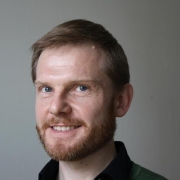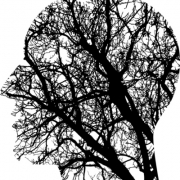Working with the grain of your brain: mental resilience for social enterprises
 In the second of a short series of blog posts on sustainable leadership and team-work in social enterprise, leadership coach and social entrepreneur Tim Segaller explores the importance of mental resilience for social enterprises
In the second of a short series of blog posts on sustainable leadership and team-work in social enterprise, leadership coach and social entrepreneur Tim Segaller explores the importance of mental resilience for social enterprises
My first blog set out the challenge of sustaining energy, creativity and inspiration in the face of complex challenges. I introduced three key foundations:
- authentic vision and leadership;
- mental resilience;
- strong relationships.
In exploring the first foundation, I explained why your vision and mission statements should be authentic, inspirational expressions of your desired social impact. And I made a case for an ‘authentic’ leadership ethos – based on your own natural leadership strengths – rather than striving to become the ‘ideal’ leader. This blog focuses on the second foundation: mental resilience.
Running a social enterprise can be tough (while rewarding!). Once the ‘honeymoon’ set-up phase has passed, there are many complex challenges: securing finance for scaling up, managing cashflow, and recruiting the right people. Such challenges can lead to frantic fire-fighting and plate-spinning. You may manage the intensity for a while. But eventually it’s likely to catch up with you – leaving you and your teams stressed, exhausted and inefficient. In the worst cases, it can lead to burnout or going bust.
The good news is that there are simple approaches to help you maintain energy and inspiration in the face of these stresses. Taken from the practice of ‘mindfulness’, they’ve been shown in neuroscience research to develop a steady mind – for focus, clear thinking and productivity. I’ve helped hundreds of people learn these skills, structured around a simple ABC formula:
Awareness – of your mental and physical experience
Being with experience – creating space to deal with intractable problems and challenging emotions
Choosing wisely – by responding flexibly instead of reacting automatically
For a taste of this approach, try this short exercise: Sit comfortably with your eyes closed. Notice sensations of breathing in your belly. If your mind gets distracted – by thoughts, memories or plans – just come back to your breathing. Keep doing this for a few minutes.
This exercise gives your brain a ‘power rest’, allowing the mind to become clearer and sharper, and the body more energised. It’s like rebooting yourself – so you can approach whatever is ahead of you with more clarity and resolve.
This is what resilience is all about, and it’s arguably the most important capacity at work. It allows you to adapt wisely to fast-changing conditions, which is critical for social enterprises. Sometimes the bright glare of your social vision can obscure the need to shift focus or tweak your business model. Resilience gives you mental agility to continually fine-tune strategy to meet the twin demands of delivering on social impact, and securing revenue and growth.
When you’re resilient you’re also better able to relate better to the people around you, and to build strong relationships. That’s what I’ll be exploring next week in my third blog.
Tim Segaller will be running a workshop on ‘Sustainable leadership and team-work in social enterprise’ at the Social Enterprise Mark Conference on 20th June 2019. Book your conference tickets here.
To find out more about Tim and his leadership coaching and training, go to www.enlivenedminds.com





